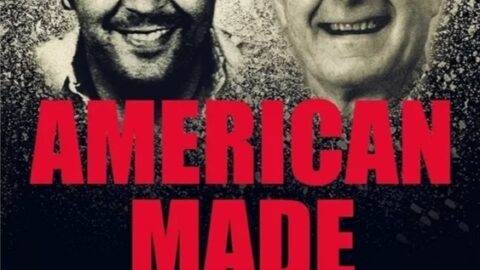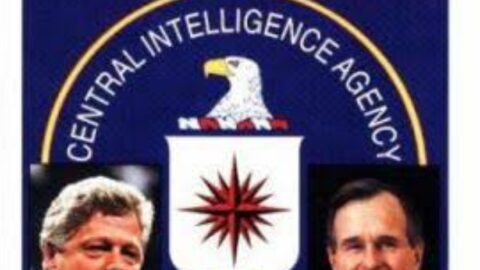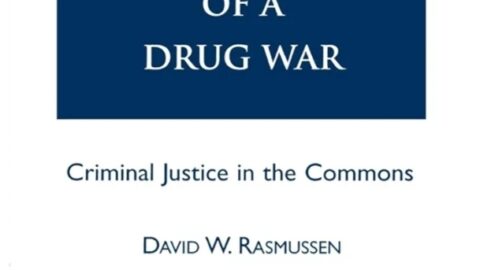(Watch the movie)
Shaun Attwood’s American Made: Who Killed Barry Seal? Pablo Escobar or George H.W. Bush (War on Drugs) delves into the life and mysterious death of Barry Seal, a notorious drug smuggler turned informant. Seal was deeply involved in the Medellín Cartel, working for Pablo Escobar, and later became a key figure in exposing the drug trade’s links to U.S. intelligence operations. Attwood’s book explores the intersections between the CIA, the Reagan administration, the Iran-Contra affair, and the War on Drugs, questioning whether Seal’s death was orchestrated by the cartel or elements within the U.S. government.
Barry Seal’s Background:
- Barry Seal started as a commercial pilot but soon became one of the most prolific drug smugglers in U.S. history, primarily working for the Medellín Cartel, led by Pablo Escobar.
- By the 1980s, Seal was transporting tons of cocaine into the U.S. using small planes, making millions in the process. His knowledge of the drug trade and the cartels made him a significant player in the underworld.
Barry Seal’s Work with the CIA:
- One of the central elements of the book is Seal’s alleged ties to the CIA and other U.S. intelligence agencies. According to Attwood, Seal’s involvement with the CIA began when he started working as an informant, offering intelligence on the operations of the Medellín Cartel.
- The book suggests that Seal may have been part of a broader CIA effort to infiltrate the cartel and that his smuggling activities were, at least at times, sanctioned by the U.S. government in the context of Cold War operations.
The Iran-Contra Affair:
- Attwood ties Seal’s activities to the Iran-Contra scandal, a political controversy in the 1980s where senior members of the Reagan administration were involved in illegal arms sales to Iran to fund the Contras in Nicaragua.
- The book argues that Seal’s smuggling was connected to this larger operation, where drugs were brought into the U.S. in exchange for arms shipments going to Central America. This aspect of Seal’s life raises serious questions about the U.S. government’s complicity in drug smuggling as part of its Cold War strategy.
Seal’s Role as an Informant:
- Seal eventually became a DEA informant after being arrested and facing the possibility of long-term imprisonment. He turned against his former cartel allies, providing critical intelligence that led to major arrests and seizures.
- In one of the most notable moments of his work as an informant, Seal orchestrated a sting operation in which he delivered evidence showing the Nicaraguan Sandinista government’s involvement in drug trafficking, an operation allegedly tied to the CIA.
The Assassination of Barry Seal:
- In 1986, Barry Seal was assassinated in Baton Rouge, Louisiana, by hitmen linked to the Medellín Cartel. At the time, Seal was working with U.S. law enforcement, providing testimony and evidence against the cartel, which made him a target for retaliation.
- However, Attwood explores an alternative theory that Seal’s death was not solely the work of Escobar’s cartel but possibly linked to U.S. government figures who may have wanted to silence him. Seal’s intimate knowledge of the CIA’s covert operations, especially his involvement in Iran-Contra and drug smuggling, made him a potential liability for powerful political players.
Pablo Escobar vs. George H.W. Bush:
- A central question in Attwood’s book is whether Pablo Escobar ordered Seal’s assassination due to his betrayal of the cartel, or if George H.W. Bush, who was vice president at the time and heavily involved in the War on Drugs, had a hand in silencing Seal to prevent damaging information from coming to light.
- Attwood raises the possibility that elements of the U.S. government, particularly those connected to Bush, may have wanted to eliminate Seal before he could expose deeper connections between the CIA, the Reagan administration, and the drug trade.
The War on Drugs:
- The book frames Seal’s story within the broader context of the War on Drugs, a campaign initiated by President Richard Nixon and significantly ramped up by President Ronald Reagan and Vice President George H.W. Bush.
- Attwood criticizes the hypocrisy of the U.S. government’s involvement in the drug trade while publicly waging a war against it. He suggests that Seal’s death is emblematic of this double standard, where certain aspects of the drug trade were tolerated or even facilitated by the government for strategic reasons, while publicly demonizing the same activities.
The Cover-Up:
- Attwood implies that Seal’s death may have been covered up or intentionally downplayed by both the U.S. government and law enforcement agencies. The book suggests that Seal knew too much about the CIA’s covert operations, including the arms-for-drugs exchange, and that his death served the interests of those who wanted to avoid further investigation into the Iran-Contra affair.
- The author examines discrepancies in the official investigations into Seal’s assassination and raises questions about whether there was a deliberate effort to prevent the truth from emerging.
Seal’s Legacy and Impact:
- Barry Seal’s life and death remain controversial and emblematic of the darker side of U.S. foreign policy and the War on Drugs. His story reveals the complexities of covert operations and the blurred lines between law enforcement, intelligence work, and criminal activity.
- Attwood argues that Seal’s assassination removed a key witness to one of the most significant political scandals of the 1980s, and his story remains relevant to understanding the ongoing relationship between the U.S. government and drug trafficking.
Shaun Attwood’s American Made: Who Killed Barry Seal? offers a gripping investigation into the life and mysterious death of one of the most notorious drug smugglers in American history. By connecting Seal’s activities to broader U.S. foreign policy objectives, particularly the CIA’s role in covert operations during the Cold War, the book raises provocative questions about government complicity in the drug trade. Attwood leaves readers with the unsettling possibility that Seal’s assassination may have been orchestrated by either the Medellín Cartel or powerful figures in the U.S. government, making his death a symbol of the murky and often hidden intersections between crime and politics in the War on Drugs.







